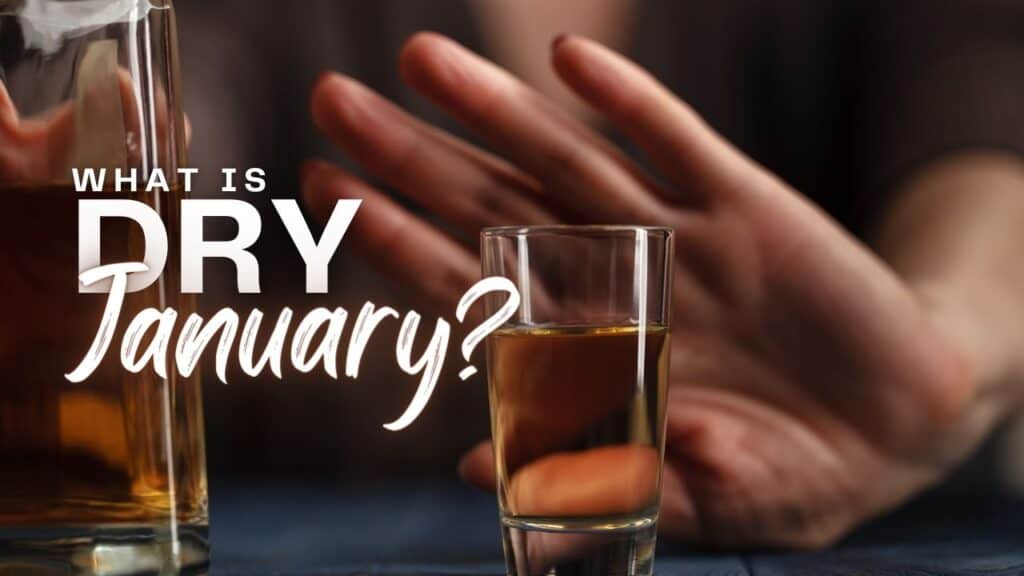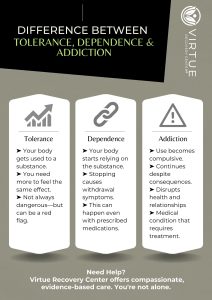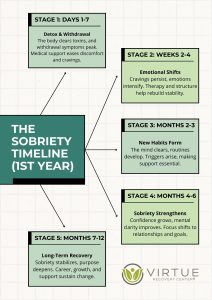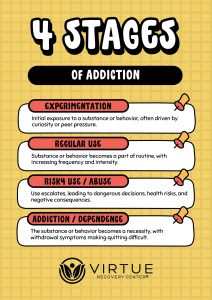Dry January, a growing global movement, encourages individuals to abstain from alcohol during the first month of the year. Originally initiated as a public health campaign, this practice, often known as the Dry January Challenge, has gained considerable attention for its potential benefits and controversies, especially within the context of drug and alcohol addiction. Understanding Dry January, a period when many choose to stop drinking, requires a deep dive into its definition, history, psychological impacts, and broader implications.
What is Dry January?
Dry January is a practice where individuals voluntarily abstain from alcohol for the entire month of January. This concept, now a registered trademark with Alcohol Change UK, started as a campaign in 2013. Initially, it was a personal challenge taken up by individuals but has since transformed into a global movement, gaining formal recognition and support. Its primary purpose is to offer a respite from the excessive indulgences of the holiday season and to start the new year on a healthier note.
Historical Background and Origin of Dry January
The roots of Dry January can be traced back to Finland’s post-WWII efforts to curb alcohol consumption, with the official campaign being launched in 2013 by Alcohol Change UK. Frank Posillico, an American businessman, is credited with inspiring the movement by sharing his positive experiences from abstaining in January 2008[1]. The concept quickly spread across the globe, with official partnerships in countries like Switzerland, Germany, Norway, and the USA.
Purpose and Goals of Dry January in the Context of Public Health
The primary goal of Dry January is to encourage individuals to re-evaluate their relationship with alcohol, offering a chance for the body and mind to reset after the festive season. Public Health England endorsed Dry January in 2015, noting its potential for long-term positive impacts on drinking habits.
Key Takeaways Table
| Key Point | Description |
| Definition | Understanding the concept and origin of Dry January, and why individuals decide to take part. |
| Psychological Effects | The impact of temporary abstinence on mental and physical health. |
| Addiction and Recovery | Dry January’s role in addiction awareness and support for recovery, as advocated by the National Institute on Alcohol Abuse. |
| Social and Cultural Implications | Influence on societal norms and media portrayal of sobriety, and how partaking in Dry January can encourage individuals to cut back on their alcohol intake. |
| Health Benefits and Risks | Analyzing the pros and cons of abstaining for a month as part of the Dry January challenge. |
| Research and Statistics | Key findings and data on Dry January’s effectiveness. |
| Personal Narratives | Diverse experiences highlighting the impact of Dry January. |
| Critiques and Controversies | Exploring different viewpoints on this initiative. |
The Concept of Temporary Abstinence
Short-term Psychological and Physical Benefits of Abstaining from Alchohol
Engaging in a month-long break from alcohol can lead to significant mental and physical health improvements. Participants often report feeling more clear-headed, experiencing better sleep, and noticing an improvement in their overall physical health. This temporary abstinence also provides an opportunity to reflect on one’s drinking patterns and their effects on health and well-being.
Comparison with Long-term Abstinence Strategies
While temporary sobriety during Dry January is beneficial, it’s important to contrast it with long-term abstinence strategies often used in addiction treatment. For individuals struggling with addiction, programs such as the Alcohol Addiction Rehab Program offered by Virtue Recovery Center Las Vegas provide comprehensive, long-term support.
Challenges and Benefits of Temporary Sobriety
Temporary sobriety poses its own set of challenges, such as social pressures and the temptation to resume drinking post-January. However, the benefits, including increased awareness of one’s drinking habits and a reset in alcohol tolerance, are significant motivators for participation.
Impact on Addiction and Recovery
The Role of Dry January in Addiction Awareness and Prevention
Dry January plays a crucial role in highlighting the prevalence of alcohol use and its potential for abuse. By encouraging temporary abstinence it provides a platform for broader discussions about addiction, fostering greater awareness and understanding. This initiative also aligns with the goals of specialized treatment programs, such as Virtue Recovery Las Vegas’s Drug Detox Program, which emphasizes the importance of understanding and addressing addiction.
How Dry January Can Aid Individuals in Recognizing Their Own Drinking Patterns or Drug Use
Participation in Dry January can be a revealing experience for many. It allows individuals to observe their dependence on alcohol or drugs in daily life, potentially identifying problematic patterns. This self-awareness is a crucial first step in seeking help and considering long-term treatment options.
Potential Impact on Those Currently in Recovery or Considering Recovery
Dry January can serve as a supportive community initiative for those already in recovery or contemplating it. It reinforces the importance of sobriety and provides an opportunity to practice abstinence in a less isolating environment. This collective effort can be particularly encouraging for individuals at various stages of their recovery journey.
Social and Cultural Implications
How Dry January Affects Social Norms Around Alcohol and Drug Consumption
Dry January has the power to shift social norms and perceptions regarding alcohol and drug consumption. By promoting sobriety as a choice and a positive lifestyle change it challenges the societal expectation that alcohol is necessary for socialization and relaxation.
The Role of Media and Social Campaigns in Promoting Dry January
Media and social campaigns are pivotal in promoting Dry January, spreading awareness, and motivating participation. These campaigns often highlight the benefits of abstaining and sharing success stories, making the concept more accessible and appealing to a broader audience.
Community and Support Systems in Dry January Initiatives
Community support is integral to the success of Dry January. This initiative fosters a sense of belonging and mutual support, making the journey of temporary abstinence less daunting. The collective experience of participating in Dry January can build a supportive network, crucial for those considering long-term recovery options like the Alcohol Detox Program offered at Virtue Recovery Las Vegas.
Health Benefits and Risks
Overview of the Health Benefits Associated with Dry January
Participants in Dry January often report a range of health benefits, including improved liver function, better sleep quality, weight loss, and enhanced mental clarity. These benefits are attributed to the absence of alcohol’s depressive effects on the body and mind.
Potential Risks or Downsides, Including the Risk of Binge Drinking Post-Dry January
While Dry January has many benefits, it’s important to acknowledge the potential risks. One significant concern is the possibility of binge drinking post-Dry January, as some participants might return to drinking with increased intensity. Additionally, for those with a dependency on alcohol, abrupt abstinence can lead to withdrawal symptoms, necessitating professional consultation before participating in such initiatives.
Research and Statistics
Summary of Key Research Findings Related to Dry January
Research indicates significant benefits for those participating in Dry January. A University of Sussex study found participants using support tools like the Try Dry app were more likely to remain alcohol-free throughout the month and experienced improved well-being and healthier drinking habits six months later.
Statistical Data on Participation Rates, Success Rates, and Long-term Impacts
Participation in Dry January has steadily increased, with over 130,000 sign-ups in 2022. Surveys show a meaningful shift in participants’ attitudes towards alcohol, with many reducing their overall consumption even after the month has ended. These trends underscore the lasting impact that even a short period of abstinence can have on drinking habits.[6]

Personal Narratives and Case Studies
Incorporation of Personal Stories or Case Studies to Illustrate the Impact of Dry January
Personal narratives and case studies bring to life the diverse experiences of those participating in Dry January. These stories range from individuals discovering a newfound appreciation for sobriety to those recognizing their problematic drinking patterns, illustrating the wide-reaching impact of this initiative.
Discussion of Diversity in Experiences, Including Varying Challenges and Successes
The experiences with Dry January vary greatly among participants, reflecting a wide spectrum of challenges and successes. Some find it an empowering journey towards better health, while others confront deeper issues related to alcohol dependence, highlighting the need for ongoing support and treatment.
Critiques and Controversies
Discussion of Critiques and Controversies Surrounding Dry January
Despite its benefits, Dry January is not without its critiques. Some argue that it oversimplifies the complex nature of addiction and may give a false sense of security about one’s control over alcohol consumption. Others express concerns about the potential for binge drinking post-January.
Counterarguments and Different Perspectives on the Effectiveness of Such Initiatives
In response to these critiques, proponents of Dry January emphasize its role in raising awareness and encouraging self-reflection regarding alcohol consumption. It’s seen as a stepping stone towards a healthier relationship with alcohol, rather than a one-size-fits-all solution.
Conclusion
Dry January offers a unique perspective on the broader context of drug and alcohol addiction. It serves as a catalyst for self-exploration and a platform for initiating conversations about healthy drinking habits. While it has its limitations and is not a substitute for professional addiction treatment, Dry January can be a valuable component of a larger strategy to address and prevent alcohol abuse. Future research and initiatives could focus on enhancing the effectiveness of such campaigns and exploring ways to support individuals in their journey beyond January.
FAQ:
Q: What are the benefits of giving up alcohol for a month?
A: Abstaining from alcohol for a month, also known as “dry January,” can lead to improved sleep, increased energy, weight loss, better concentration, and overall improved health.
Q: How can staying dry for January help me sleep better?
A: Giving up alcohol for a month can significantly improve your sleep quality. Alcohol disrupts the natural sleep cycle, and abstaining from it can lead to deeper and more restful sleep.
Q: What is Dry January and how can it help me abstain from alcohol?
A: Dry January is a public health initiative where individuals commit to giving up alcohol for the entire month of January. It provides support, tips, and resources to help participants successfully complete the month without drinking.
Q: Is it beneficial to take part in Dry January if I drink too much?
A: Yes, taking part in Dry January can be especially beneficial for individuals who have been drinking too much. It can help reset drinking habits, improve overall health, and reduce the risk of alcohol abuse and alcoholism.
Q: How can I successfully complete Dry January and stay sober for the entire month?
A: To successfully complete Dry January and stay sober for the entire month, it’s important to set realistic goals, surround yourself with supportive friends, find alternative activities to drinking, and seek professional help if needed.
Q: What are some tips for success in completing a dry month for January?
A: Some tips for success in completing a dry month for January include finding a supportive community, setting specific goals, being mindful of triggers, staying physically active, and replacing alcoholic drinks with alternatives like sparkling water.
Q: What is the significance of Dry January as a public health initiative?
A: Dry January is a great way to raise awareness about the impact of alcohol on health and well-being. It encourages people to reevaluate their relationship with alcohol, make healthier choices, and consider long-term changes in their drinking habits.
Q: How did Dry January begin and what steps can I take to participate?
A: Dry January began as a public health campaign in the UK and has since gained global popularity. To participate, you can sign up for support through various organizations, download apps designed to help you through the month, and educate yourself on the benefits of a dry month.
Q: Are there any resources or tools available to help me complete Dry January?
A: Yes, there are resources such as the “Dry January” app, guidance from organizations like Alcohol Concern, and support from healthcare professionals at institutions like Harvard Medical School and McLean Hospital to assist you in completing Dry January successfully.
Are There Health Benefits to Giving Up Alcohol, Similar to Participating in a PHP?
Giving up alcohol can lead to numerous health benefits, similar to participating in a PHP. You may experience improved mental clarity, better sleep, and enhanced overall well-being. However, the extent of these benefits depends on various factors, such as how long does php last and individual lifestyle choices.
Q: What are some notable effects of completing a full dry January?
A: Completing a full dry January can lead to both physical and mental benefits, including improved liver function, better sleep, clearer skin, weight loss, decreased risk of alcohol-related diseases, and an overall sense of accomplishment and well-being.
Sources
- Thrillist. (n.d.). What is Dry January: Meaning & Why It Might Be a Bad Idea. Retrieved from Thrillist.
- WebMD. (n.d.). Dry January: A Month With No Alcohol? Retrieved from WebMD.
- Cleveland Clinic. (n.d.). Why a Dry January Is Good for Your Health. Retrieved from Cleveland Clinic Health Essentials.
- Verywell Mind. (n.d.). Dry January: The Benefits of a Month Without Alcohol. Retrieved from Verywell Mind.
- Psychology Today. (n.d.). Dry January: What Is It, and Why You Should Try It. Retrieved from Psychology Today.
- Wikipedia. (n.d.). Dry January. Retrieved from Wikipedia.













